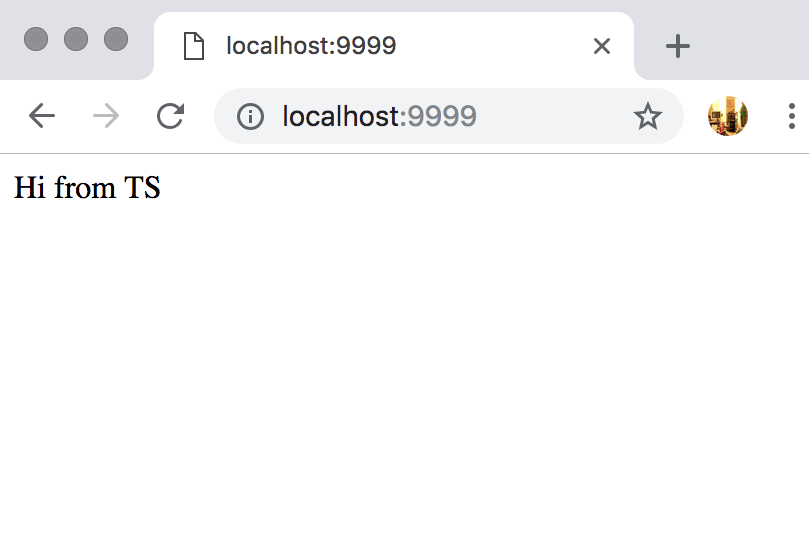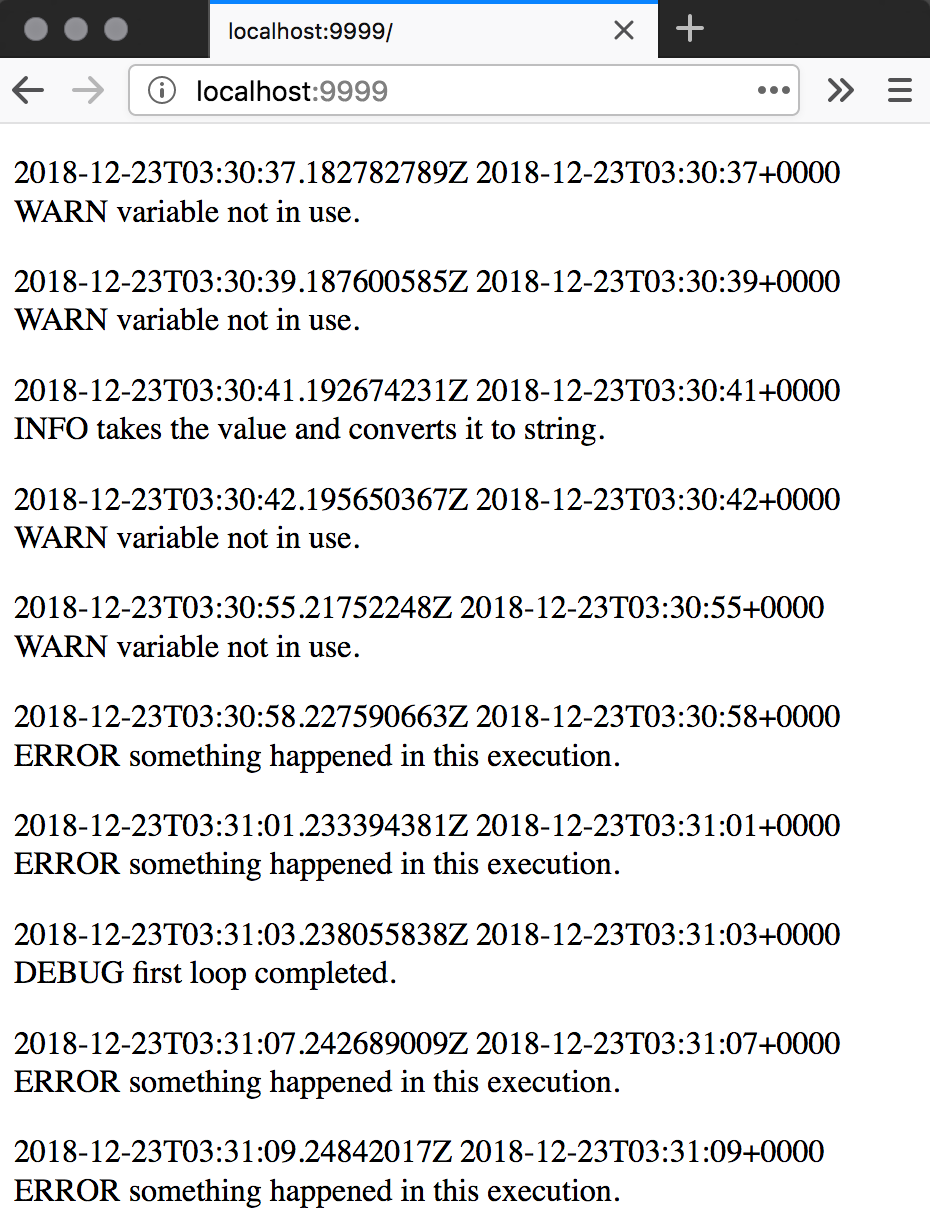In part 2 we implemented the service. Let’s write a Typescript client to complete the app.
Geting the Typescript setup out of the way
$ tsc --init
$ npm i --save grpc-web-client
$ npm i --save-dev webpack@4 webpack-cli@4 awesome-typescript-loader typescript @types/google-protobufQuick webpack config for transpilation to Javascript
const webpack = require('webpack');
module.exports = function makeWebpackConfig() {
let config = {};
config.entry = {
index: "./index.ts",
};
config.devtool = 'eval-source-map';
config.resolve = {
extensions: [".ts", ".js"]
};
config.module = {
rules: [
{test: /\.ts?$/, loader: "awesome-typescript-loader"}
]
};
return config;
}();Write an index.html and index.ts that will serve as our app
<div id="root"></div>
<script src="dist/index.js"></script>document.getElementById('root').innerHTML = "Hi from TS";To prevent issues with CORS, the Go service will serve both gRPC and our frontend static resource..
Jumping back to main.go, if a request is for gRPC, grpc-web will automatically add the Content-Type: application/grpc. Everything else we can treat as a request for static resources.
The http.Server handler in main.go would look something like this
if err := (&http.Server{
Handler: http.HandlerFunc(func(w http.ResponseWriter, r *http.Request) {
if strings.Contains(r.Header.Get("Content-Type"), "application/grpc") {
wrappedGrpcServer.ServeHTTP(w, r)
} else {
http.FileServer(http.Dir(".")).ServeHTTP(w, r)
}
}),
Addr: "0.0.0.0:9999",
}).ListenAndServe(); err != nil {
log.Fatal(err)
}Quick test that the static resources are served correctly on http://localhost:9999/index.html
$ ./node_modules/.bin/webpack -w &
$ go run main.go
Typescript gRPC call
Always saving the best for last, lets call GetLogs with the browser and display the result.
import {GetLogsRequest, GetLogsResponse} from './generated/service_pb';
import {LogServiceClient, ServiceError} from './generated/service_pb_service';
let root = document.getElementById('root');
let client = new LogServiceClient('http://localhost:9999'),
request = new GetLogsRequest();
request.setPodname('pod/random-logger-7f68f7949-88zrw');
client.getLogs(request, (err: ServiceError | null, logs: GetLogsResponse | null) => {
if (!root) {
throw new Error('Failed to find root');
}
if (err) {
root.innerHTML = 'Error: ' + err.message;
return;
}
if (!logs) {
root.innerHTML = 'No logs';
return;
}
logs.getDataList().map(log => {
if (!root) {
throw new Error('Failed to find root');
}
let pEl = document.createElement('p');
pEl.innerHTML = log;
root.appendChild(pEl);
});
});Which outputs
